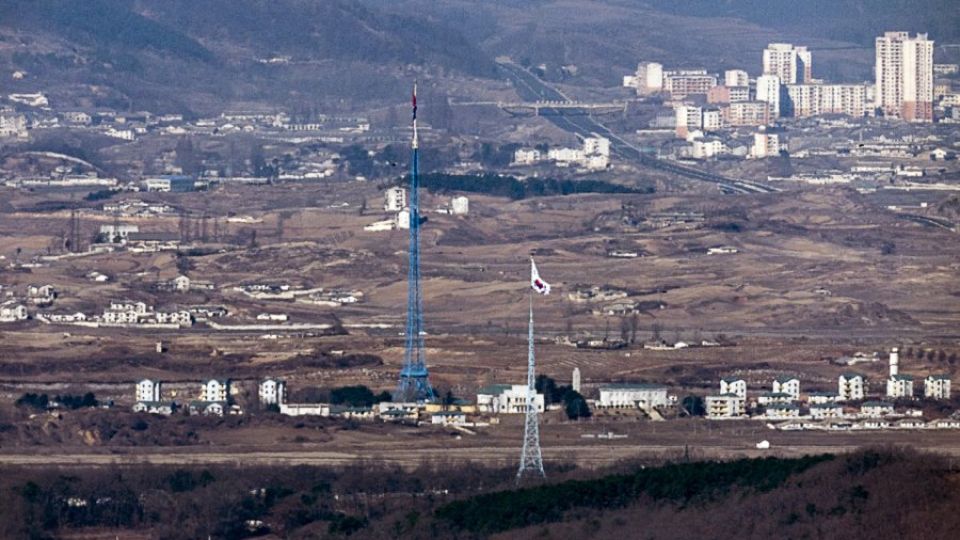April 10, 2023
SEOUL – North Korea has refused to take regularly held, inter-Korean, military-to-military calls from South Korea for three days without explanation, South Korea’s Defense Ministry said Sunday morning.
The two Koreas hold calls twice a day, in the morning and afternoon, via liaison and military hotlines. But North Korea has stopped answering regular calls across all inter-Korean communication channels since Friday morning.
Inter-Korean military hotlines — which operate at 9 a.m. and 4 p.m. seven days a week — have gone unanswered for the third consecutive day. North Korea did not respond to calls by the South Korean military respectively on Sunday morning and afternoon.
Regular calls have not taken place for unknown reasons on North Korea’s side,” a South Korean military official said.
“We are keeping close tabs on the situation while staying open to all possibilities, including the malfunction of North Korea’s communication channels.”
The South Korean military also raised the possibility that the North could have been dodging the calls on purpose in an apparent protest against the South Korean government.
The two Koreas do not conduct routine daily calls through the liaison hotline during weekends. But South Korea’s Unification Ministry on Friday confirmed that North Korea was unresponsive to calls both in the morning and afternoon, adding that South Korea’s communication channel was functioning.
“North Korea’s continuing refusal to take calls via inter-Korean communication channels is seen as backlash against South Korea’s recent moves to ramp up pressures on North Korean human rights issues,” said Yang Moo-jin, a professor at the University of North Korean Studies in Seoul.
Yang added that South Korea’s attempts to “raise the issue of North Korea’s illegal operations of vehicles in the Kaesong Industrial Complex amid heightened tensions on the Korean Peninsula on the occasion of the recent South Korea-US combined military exercises,” may also be contributing to the situation.
Notably, North Korea’s silent treatment began the day after South Korea’s Unification Ministry on Thursday tried to send a written statement to North Korea through the communication line urging the North not to illegally operate South Korea-owned factories and vehicles at the now-shuttered Kaesong Industrial Complex.
North Korea rejected receiving the statement on Thursday morning. Then, the Unification Ministry openly warned that it would take “necessary measures” if North Korea remains silent on its request to stop using South Korean assets at the inter-Korean industrial complex located in the North Korean border city of Kaesong.
The Yoon Suk Yeol government released a comprehensive report on violations committed in North Korea for the first time on March 31. The government also co-sponsored the resolution on North Korean human rights abuses by the UN Human Rights Council in early April for the first time since 2018.
Yang noted that North Korea’s silence could be seen as a countermeasure to the Yoon government’s recent decision to abolish a secretariat, which had been built to support the inter-Korean liaison office, and to integrate its functions into the Office of Inter-Korean Dialogue.
South Korean Prime Minister Han Duck-soo on Sunday said that “it is very regrettable that communication channels have been severed” by Pyongyang in light of Seoul’s pursuit to resume inter-Korean talks in tandem with its efforts to enhance deterrence and its readiness posture against escalating North Korean threats.
“At the same time, we need to open the door for dialogue. Our stance is to continue efforts to persuade North Korea along with the US and partners,” Han said in an interview with South Korea’s state-run broadcaster KBS. “We hope that North Korea will return soon.”
North Korea’s disconnection of inter-Korean communications channels is not new, and technical issues have often occurred. For instance, in June and October 2022, North Korea did not answer South Korea’s routine morning calls but responded to calls later in the day.
But North Korea also has a long track record of cutting off inter-Korean communications channels on purpose in a bid to air its grievances with South Korea.
North Korea severed the lines in June 2020, when it destroyed an inter-Korean liaison office to protest anti-North Korea leaflets that had crossed the North-South border. North Korea restored the inter-Korean hotlines in July 2021 after a 14-month suspension. Then, Pyongyang halted the operation of the communication channels once again between August and October 2021 in protest against regular South Korea-US military exercises.
North Korea’s recent refusal to take inter-Korean calls comes at a sensitive time as the country gears up to celebrate the anniversary of the late founder Kim Il-sung’s birth, which falls on April 15. North Korea has been widely expected to conduct high-profile provocations on the occasion, including launching a military spy satellite or firing an intercontinental ballistic missile at a normal angle.
Meanwhile, North Korean state media on Saturday claimed that it conducted its third test of a nuclear-capable underwater attack drone from April 4 to 7, while ratcheting up tensions on the peninsula by using regular, defense-oriented military exercises between South Korea and the US as a pretext.


